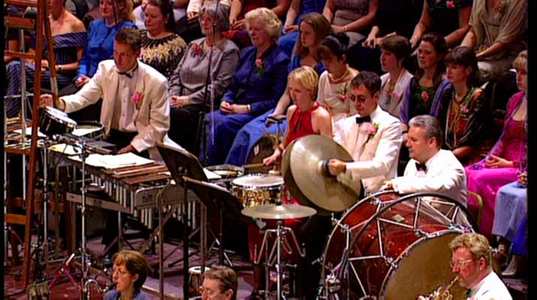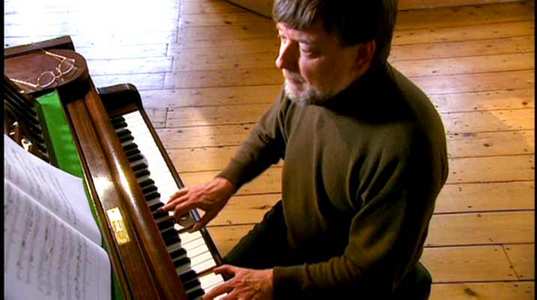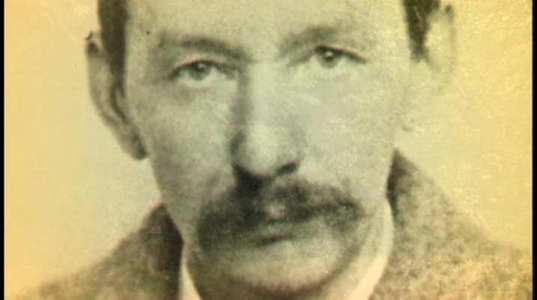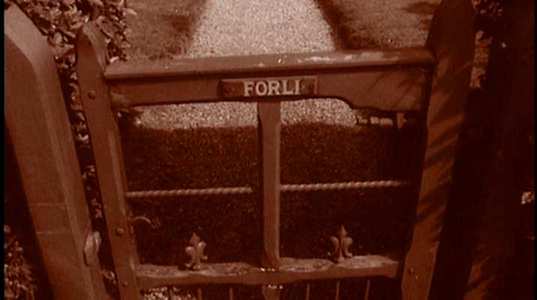Elgar: Enigma Variations
Introduction
The disc includes a 2004 BBC documentary from Sir Andrew Davis (which attempts to explain some of the `Enigma(s)` behind what is Elgar`s most popular work by far, and arguably one of the most famous pieces of music ever written), together with a complete performance of the work itself from Worcester Cathedral - a place he conducted many times himself.

Video
As is to be expected from a recent television production, the video quality is exemplary in both the documentary and the filmed concert performance. They are both presented in 16:9 anamorphic transfer/NTSC format (I imagine that this is because it`s a region free disk, and can therefore be marketed anywhere, although I had watched most of the documentary in PAL mode before realising).

Audio
We have a choice of LPCS stereo or DTS. The DTS option is fine, but for the documentary itself, fairly pointless unless you become overly excited about some birdsong coming from your far-flung speakers. It is more effective during the performance itself, yet even here, I preferred the stereo option (as with most concert performances on DVD)which doesn`t displace the sound unnaturally.

Features
The DVD comes with a booklet in English, French and German and lists those people we know Elgar wrote about in the Variations, together with photographs (some fine moustaches on view!), while the documentary itself may be viewed with French, German, Italian or Spanish subtitles. The menu options are clear and unfussy, with chapters available for each variation within the performance and for each featured variation within the documentary.

Conclusion
A new documentary about the `Enigma Variations` needs to have something new to say about what is probably the most recorded piece of British classical music, and I`m afraid it ultimately fails in this respect, not really knowing whether it`s a musicological study or a picture-postcard view of Worcestershire (with musical accompaniment). Much of the programme is taken up, unsurprisingly, by large chunks of the piece itself with some rather pointless `dramatic` scenes purporting to show what the music describes while it`s being played (a patronising production technique that assumes we are not able to imagine anything ourselves). The `Enigma` of the title could of course, mean anything; from the `unheard theme` running throughout - something Davis touches upon but dismisses rather too readily for my liking, to the more obvious i.e. the names of the people Elgar depicted. Here, the programme becomes more fascinating, as it gives us a glimpse of real, but long-dead friends of the composer (and one dog) and the skills Elgar used to capture a part of their personality. However, Davis only picks on certain variations to discuss, which leaves those we are not told about a bit more of an enigma. It does suggest quite convincingly though, that through this music we find out about Elgar`s own life and feelings, and the fact that even though he obviously had several close female friends throughout his life (6 of which are described in `Enigma` alone) the closest was his wife, and when she died in 1920, he wrote little else before his death 14 years later.
Overall however, Davis seems a little too reverential towards this work, and indeed Elgar himself. For a composer who is always held up as being quintessentially English, his music remained deeply embedded in the 19th Century Germanic/Russian tradition of Brahms and Tchaikovsky. The `Enigma Variations` was finished in 1899, and is descibed as `new and fresh` in this programme, which is certainly true for English music of the time, yet it would be a few decades before British composers began to catch up on what was being done on the continent.
The complete performance of the work is undeniably fine, although the opening a bit too slow for my liking, (but at least Variation IX, `Nimrod`, is nowhere near as funereal as the Leonard Bernstein recording with the same orchestra), and the BBC Symphony Orchestra (who appear to be squeezed out of shape within the confines of the cathedral) work well with Davis, a conductor they`ve known for years, but again, with a piece recorded so often (although not as much on DVD as yet) it`s difficult to become too enthused about yet another airing. However, as a package, this would actually make a very good introduction to not just this piece, but for Elgar`s music as a whole, and there are some fine camera angles used within the cathedral making this an even more persuasive Worcester tourist board advertisement.
Your Opinions and Comments
Be the first to post a comment!